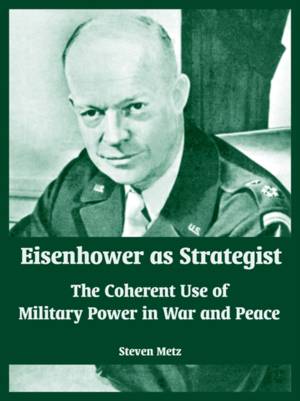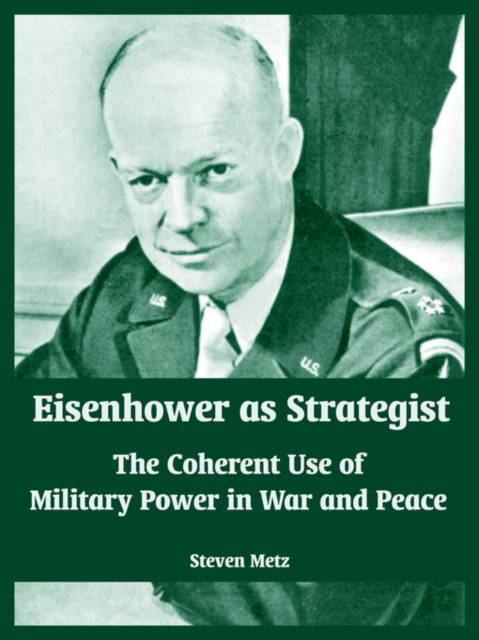
Bedankt voor het vertrouwen het afgelopen jaar! Om jou te bedanken bieden we GRATIS verzending (in België) aan op alles gedurende de hele maand januari.
- Afhalen na 1 uur in een winkel met voorraad
- In januari gratis thuislevering in België
- Ruim aanbod met 7 miljoen producten
Bedankt voor het vertrouwen het afgelopen jaar! Om jou te bedanken bieden we GRATIS verzending (in België) aan op alles gedurende de hele maand januari.
- Afhalen na 1 uur in een winkel met voorraad
- In januari gratis thuislevering in België
- Ruim aanbod met 7 miljoen producten
Zoeken
Eisenhower as Strategist
The Coherent Use of Military Power in War and Peace
Steven Metz
Paperback | Engels
€ 25,95
+ 51 punten
Omschrijving
The facts of Dwight D. Eisenhower's military career are well-known. This does not mean, however, that there is nothing to be gained from a careful examination of his experience. Few if any American officers performed a wider array of strategic functions - he was a staff planner in the War Department, wartime commander of a massive coalition force, peacetime Chief of Staff, and Supreme Allied Commander in Europe. Eisenhower was directly involved in a number of major transitions including the building of the wartime American Army, its demobilization following the war, and the resuscitation of American military strength during the initial years of the cold war. This means that Eisenhower's career can provide important lessons on how a coherent strategy should and should not be built during times of strategic transition. That is what this monograph begins to do. It is not intended to be a biography in the usual sense and thus offers no new facts or insights into Eisenhower's life. Instead it uses that life as a backdrop for exploring the broader essence of strategic coherence and draws lessons from Eisenhower's career that can help guide the strategic transition which the U.S. military now faces. WILLIAM A. STOFFT Major General, U.S. Army Commandant
Specificaties
Betrokkenen
- Auteur(s):
- Uitgeverij:
Inhoud
- Aantal bladzijden:
- 88
- Taal:
- Engels
Eigenschappen
- Productcode (EAN):
- 9781410217547
- Verschijningsdatum:
- 15/10/2004
- Uitvoering:
- Paperback
- Formaat:
- Trade paperback (VS)
- Afmetingen:
- 210 mm x 279 mm
- Gewicht:
- 217 g

Alleen bij Standaard Boekhandel
+ 51 punten op je klantenkaart van Standaard Boekhandel
Beoordelingen
We publiceren alleen reviews die voldoen aan de voorwaarden voor reviews. Bekijk onze voorwaarden voor reviews.









